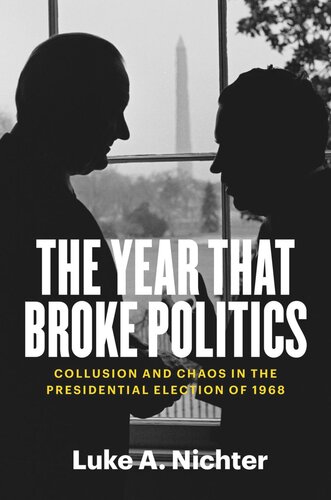

Most ebook files are in PDF format, so you can easily read them using various software such as Foxit Reader or directly on the Google Chrome browser.
Some ebook files are released by publishers in other formats such as .awz, .mobi, .epub, .fb2, etc. You may need to install specific software to read these formats on mobile/PC, such as Calibre.
Please read the tutorial at this link: https://ebookbell.com/faq
We offer FREE conversion to the popular formats you request; however, this may take some time. Therefore, right after payment, please email us, and we will try to provide the service as quickly as possible.
For some exceptional file formats or broken links (if any), please refrain from opening any disputes. Instead, email us first, and we will try to assist within a maximum of 6 hours.
EbookBell Team

4.0
46 reviewsThe unknown story of the election that set the tone for today’s fractured politics
“A fresh, authoritative analysis of a pivotal election year.”—Kirkus Reviews
The 1968 presidential race was a contentious battle between vice president Hubert Humphrey, Republican Richard Nixon, and former Alabama governor George Wallace. The United States was reeling from the assassinations of Martin Luther King, Jr., and Robert F. Kennedy and was bitterly divided on the Vietnam War and domestic issues, including civil rights and rising crime. Drawing on previously unexamined archives and numerous interviews, Luke A. Nichter upends the conventional understanding of the campaign.
Nichter chronicles how the evangelist Billy Graham met with Johnson after the president’s attempt to reenter the race was stymied by his own party, and offered him a deal: Nixon, if elected, would continue Johnson’s Vietnam War policy and also not oppose his Great Society, if Johnson would soften his support for Humphrey. Johnson agreed.
Nichter also shows that Johnson was far more active in the campaign than has previously been described; that Humphrey’s resurgence in October had nothing to do with his changing his position on the war; that Nixon’s “Southern Strategy” has been misunderstood, since he hardly even campaigned there; and that Wallace’s appeal went far beyond the South and anticipated today’s Republican populism. This eye-opening account of the political calculations and maneuvering that decided this fiercely fought election reshapes our understanding of a key moment in twentieth-century American history.